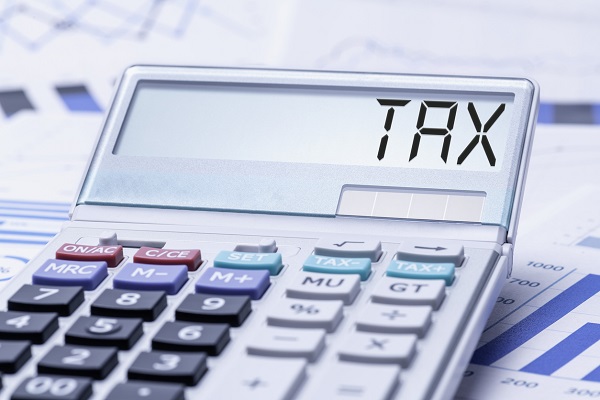Seven tax tricks to reduce your tax return bill
24th January 2023 11:34
by Alice Guy from interactive investor
With the tax return deadline looming, we reveal seven nifty tricks to help reduce your tax bill.

It’s tax return time, and millions of us across the UK are now rifling through filing cabinets and scouring old letters for our long-forgotten government gateway password.
- Invest with ii: Open a Stocks & Shares ISA | What is a Stocks & Shares ISA? | ISA Offers & Cashback
The tax return deadline is midnight on 31 January 2023 for the tax year from 6 April 2021 to 5 April 2022. You'll also need to pay any tax you owe for the last tax year by then, so make sure you have your bank card ready!
You’ll get a penalty of £100 if you miss the deadline for submitting your return or paying your bill. You'll have to pay more if your return is more than three months late.
Here we take a look at seven tax tricks to make sure you’re not paying more tax than necessary in 2023.
1) Pension payments
If you pay into a private pension and you’re a higher-rate taxpayer, you may be able to reduce your tax bill or get a chunky tax rebate.
That’s because private pension payments are only topped up by 20% tax relief automatically – you’ll need to do a tax return to claim back the extra 20% as a higher-rate taxpayer.
And even if you don’t fill in a tax return, higher-rate taxpayers can still claim a tax rebate for private pension payments. You’ll need to write to or call HMRC setting out the private pension payments you’ve made during the previous year.
- How does your pension compare with your neighbour?
- 10 essential things to know about pension tax relief
Some workplace pensions also don’t automatically give higher-rate tax relief. “Relief at source” pension schemes work by your employer taking your pension payments from your take-home pay after tax is deducted.
Your pension provider claims a 20% top up from HMRC, but higher-rate taxpayers won’t automatically get the extra 20% they’re entitled to and need to claim it through their tax return.
2) Gift aid
Many higher-rate taxpayers don’t realise that they can also get a tax rebate for any charitable gifts made through gift aid schemes.
Just like pension tax relief, a charity can recoup 20% tax on top of your gift, meaning that a charity can claim an extra £20 gift aid on a £80 donation.
You need to set out any charitable gifts in your tax return, or write to or call HMRC with details of your donations.
You can even include things such as a National Trust membership fee or gifts of clothes to charity shops where you have a gift aid arrangement.
If you contact charities where you regularly donate unwanted goods, they should have a record of how much they raised through your donations during the year. If you’re having a big clear-out, it can really mount up.
3) Child benefit
If you’ve got kids and you’re a higher-rate taxpayer, then you’ll probably know all about the high-income child benefit charge.
The child benefit charge kicks in once you earn more than £50,000 and you’ll need to pay back some of your child benefit, or all once you earn £60,000 or more.
But if you pay extra into your pension, or give gifts to charity you may be able to reduce your bill as HMRC takes account of adjusted taxable income to work out your high child benefit charge.
Someone earning £55,000 who contributes 5% to their workplace pension already reduces their adjusted income to £52,250. They would need to contribute another £1,800 (£2,250 including 20% tax relief) to their private pension to bring their adjusted income to £50,000. They would then receive a further £396 tax rebate and save a total of £424 in child benefit, if they have two children.

4) Expenses
Most of us know that business expenses can reduce our tax bill, but it’s worth double-checking what business expenses you can include in your tax return.
- Use this neat ISA trick to avoid a big tax bill in 2023
- Tax trap: understand these rules and avoid a massive tax bill
If you’re self-employed, you’ll only pay tax on your profits. You can deduct some office costs, travel costs, business insurance and bank charges and costs for training costs, costs of a business premises, advertising or marketing and stock costs from your sales total. Check here for more details.
5) Working from home
For tax years 2020 to 2021 and 2021 to 2022, employees can claim £6 per week in working from home expenses if they needed to work at home due to Covid-19 restrictions.
You can also claim working from home expenses for previous tax years if you realise you forgot to claim. You have until 5 April 2025 to make claims for the 2020-21 tax year, and until 5 April 2026 to make claims for 2021-22.
Working from home tax relief has changed this tax year, so fewer people will be eligible in 2022-23.
6) Married couple’s allowance
If you’re married or in a civil partnership, then you might be eligible for the married couple’s allowance. It’s available for couple where one person pays basic rate tax, and the other earns under the personal allowance threshold of £12,570.
It works by transferring some of the lower earner’s personal allowance to the higher earner and adding £1,260 to their personal allowance. This would potentially save £252 in tax for the higher earner.
Again, you’ll get it automatically through your tax return, but you can write and claim it if you don’t do a tax return.
7) Amending return
According to a Whichsurvey, 42% of us don’t realise it’s possible to amend your tax return for up to a year after filing it.
This means if you realise you’ve forgotten to include some expenses, private pension payments or charitable gifts, you can go in and amend your return. You can request for HMRC to send you a refund, and you should receive it within four weeks.
Tax return finally done? It’s time to put on the kettle and open the chocolate Hobnobs. Just don’t forget to keep your government gateway password somewhere safe for next year!
These articles are provided for information purposes only. Occasionally, an opinion about whether to buy or sell a specific investment may be provided by third parties. The content is not intended to be a personal recommendation to buy or sell any financial instrument or product, or to adopt any investment strategy as it is not provided based on an assessment of your investing knowledge and experience, your financial situation or your investment objectives. The value of your investments, and the income derived from them, may go down as well as up. You may not get back all the money that you invest. The investments referred to in this article may not be suitable for all investors, and if in doubt, an investor should seek advice from a qualified investment adviser.
Full performance can be found on the company or index summary page on the interactive investor website. Simply click on the company's or index name highlighted in the article.